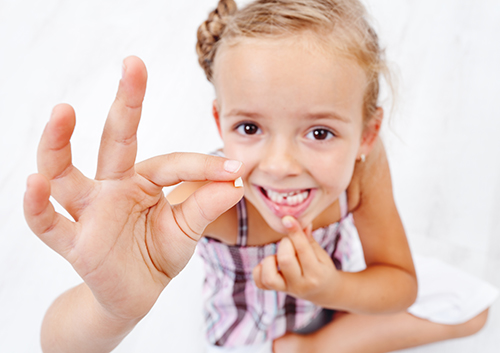August 14th, 2019

Dr. Milan Yazdani and our team at Yazdani Dentel understand that many of our patients have a fear of dentistry. You may be concerned about experiencing pain from sensitive teeth or routine procedures. General anxiety is also common. Do not put off visiting our Aurora office; we offer various types of sedation to take the pain and fear out of your dental procedure.
Nitrous Oxide Sedation
For many patients, nitrous oxide, combined with local anesthetics, will both provide pain relief and reduce anxiety. Nitrous oxide is beneficial because the dosage can be regulated during treatment and patients are normally capable of driving shortly after the procedure is completed.
Oral or Injected Sedation
With oral sedation, you may be given a pill or liquid to consume several hours before your procedure. You will not be able to drive yourself to the appointment. An oral liquid is often given to children before any shots or intravenous anesthesia. An intramuscular injection may be given at the office that provides relaxation benefits for 20 to 30 minutes.
Nitrous Oxide with an Oral Sedative
If you experience higher levels of anxiety, an oral or injected sedative can be offered before nitrous oxide is started. This is also effective for reducing anxiety regarding the injection of local anesthetics. A liquid medication followed by nitrous oxide is beneficial for children. This combination can produce a deep sedation level.
General Anesthesia
This type of anesthesia can be offered as an inhaled gas or intravenous liquid. If no oral sedative is given before the general anesthesia is administered, you should wake up quickly after your procedure is complete. An injection, pill, or liquid medication can be offered to reduce anxiety before intravenous sedation begins. Intravenous sedation can also be used at moderate-to-deep sedation levels without complete loss of consciousness.
Do not hesitate to ask Dr. Milan Yazdani about receiving sedation or pain prevention when you visit. We will be glad to explain the options we have available and answer all your questions to ensure that your exam is pleasant for you.
August 7th, 2019

While the last baby teeth generally aren’t lost until age ten or 11, most children stop believing in the tooth fairy by the time they're seven or eight. Of course, children are more than happy to play along with the game when there’s money at stake! While it is impossible to know what the tooth fairy does with all those teeth (are they labeled and stored like museum pieces in a giant fairytale castle?), it is possible to trace the history and myth of the tooth fairy to several cultures and traditions. Dr. Milan Yazdani and our team learned about some interesting myths about the tooth fairy!
The Middle Ages
Legend has it that Europeans in the Middle Ages believed a witch could curse someone by using their teeth, so it was important to dispose of baby teeth correctly. Teeth were swallowed, buried, or burned. Sometimes baby teeth were even left for rodents to eat. Despite being pests, rodents were valued for their strong teeth; it was generally believed a tooth fed to a rodent would lead to the development of a healthy and strong adult tooth.
Eighteenth Century France
The tooth fairy myth began to show more characteristics of a conventional fairytale in 18th century France. La Bonne Petite Souris, a bedtime story, tells the strange tale of a fairy that changes into a mouse to help a good queen defeat an evil king. The mouse secretly hides under the evil king’s pillow and defeats him by knocking out his teeth.
Scandinavian Lore
So, why does the tooth fairy leave money under the pillow? The idea of exchanging a tooth for coins originated in Scandinavia. Vikings paid children for a lost tooth. Teeth were worn on necklaces as good luck charms in battle. While the idea of exchanging a tooth for coins quickly spread throughout the rest of Europe, a fierce, horn-helmeted Viking is far cry from the image of a fairy collecting teeth.
While the tooth fairy as children know her today didn’t make an appearance until the 1900s, tooth myths and rites of passage have existed in numerous cultures since the dawn of time.
July 17th, 2019

Emergency care dentists are equipped to handle any tooth emergency. Seeing us first takes less time than having to sit in a hospital emergency room, only to be told to see a dentist. When dental emergencies occur, seek emergency care with Yazdani Dentel as soon as possible. We are prepared and equipped for any type of dental emergency: day or night, seven days a week, we stand ready to advise and treat you with great dental care.
There are several types of dental emergencies, but only one or two should require a hospital emergency room visit. If you suspect you have a broken jaw or nose, emergency medical attention is required. For pain associated with teeth and gums or injury to a tooth, Yazdani Dentel is the better choice. Dental pain almost always becomes worse without treatment, and can create other serious health issues.
If a tooth has been traumatized or knocked out of your mouth, our team can treat the sensitive nerves and tissues that could be damaged. If you can replace the tooth quickly enough, chances are it can be saved. There are certain precautions to take during a dental emergency that could help preserve a tooth until you can see our professional dentists for emergency dental care.
Call our Aurora office at the first onset of pain. If you have lost a tooth, crown, or filling, try to keep the tooth or restoration moist. Teeth are strong, but they will crack and shift after an injury or the loss of a bridge or crown. If the crack extends to the root, or the loss of a tooth or crown leaves sensitive tissue or nerves exposed, the pain can be excruciating. Our emergency care dentists will always treat your pain immediately upon examination, and fix the problem or advise you of a plan to address the cause of the pain.
Make your appointment immediately if you have suffered an accident-causing tooth injury. If the pain is the result of decay or cavities, medication for infection may be necessary. Depending on the extent of the decay, a filling, extraction, or root canal may be recommended. These treatments are not available in a hospital emergency room, but can be completed quickly and comfortably at Yazdani Dentel .
July 10th, 2019

Children are born with a set of primary teeth – 20 to be exact – that help them learn to chew and speak, and develop enough space in the jaw for the permanent teeth that will appear several years later. Kids are especially susceptible to decay, which can cause pain and tooth loss – a problem that could interfere with oral development. As a parent, it is important that you take proactive steps to keep your child’s teeth as healthy as possible.
Bottles and “Sippie Cups”
One of the biggest culprits of childhood tooth decay is poor diet. This begins as early as a few months old, when children are often allowed to go to bed with bottles and “sippie cups” of milk or juice. The sugars in these beverages – even natural sugars – can steadily decay the teeth.
Dr. Milan Yazdani and our staff suggest serving children milk and juice only at meal times, and limiting juice intake to just a few ounces per day. If your child becomes thirsty between meals or likes to go to bed with a bottle, serve water during these times.
Hygiene
As a parent, you can establish healthy dental habits long before your child’s first tooth erupts. Start by gently wiping your baby’s gums with a clean wash cloth during the first months of life. By age one, graduate to an appropriately sized toothbrush with fluoridated toothpaste, and brush at least twice a day.
Dental Visits
Dental visits should start young and continue on a regular basis throughout your child's life. Dr. Milan Yazdani and our staff recommend parents bring their children to Yazdani Dentel for the first time no later than the child’s first birthday. Initial visits concentrate on parental education, while later visits may include thorough cleanings and fluoride treatments as your child grows.
For more information about keeping your child’s teeth cavity-free, contact our Aurora office to schedule a dental consultation and checkup.





 Website Powered by Sesame 24-7™
Website Powered by Sesame 24-7™
What PatientsAre Saying